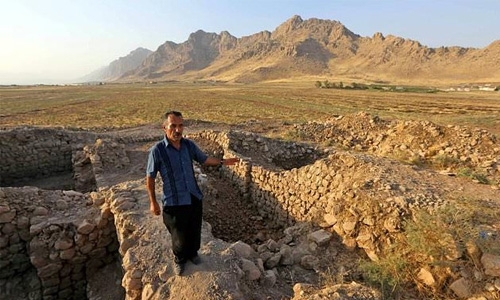Iraq flight ban halts dig for lost ancient city
Ranya : Ismael Nuraddini peers into a hole in the earth of Iraq's Kurdistan region at what researchers believe could be remnants of a lost city dating back more than 2,000 years.
Pointing around the Qalatga Darband site, he recounts the discoveries of two statues that may help to prove this was once a thriving hub founded by one of the ancient world's most powerful rulers -- Alexander the Great.
"One of them looks like Aphrodite, the goddess of beauty in ancient Greece. The other one could be Alexander," Nuraddini, 62, tells AFP.
Until recently the dig, some 330 kilometres (200 miles) northwest of Baghdad, was buzzing with activity as a team of 15 archaeologists from both Iraq and abroad worked under the stewardship of the British Museum in London to uncover more invaluable treasures.
But now the site is silent as the foreign experts -- two Britons and a Hungarian -- packed up and left last week to avoid becoming stranded after a spat between Iraq's central government and the Kurdish authorities over a disputed independence referendum that saw Baghdad cut international air links to the region.
"This is the first time researchers from abroad have had to leave," said student Rzgar Qader Boskiny, who has been working on a neighbouring dig.
"They even stayed here when the Islamic State group came near," he said referring to the jihadists.
Related Posts

